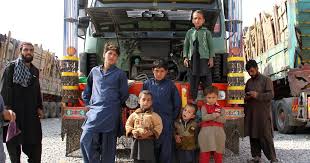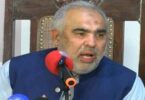Dr. Waseem Hassan
According to Internal Displacement Monitoring Centre (IDMC), From 2010 to 2021, a staggering 225.3 million internal displacements, or forced movements (due to conflicts, natural disasters, and other destabilizing events), were documented globally. `While, according to UNHCR, (by the close of 2022), 108.4 million people were forcibly displaced.
In the same vein, Pakistan emerges as a significant player in the landscape of forced migration and displacement. As of recent BBC statistics, Pakistan is home to over four million Afghan migrants and refugees, making it one of the largest host countries for displaced Afghans globally.
Beyond the immediate needs of shelter, food, and other essential services for forcibly displaced populations, there exists a critical imperative to conduct comprehensive research covering the experiences, challenges, and aspirations of internally displaced persons (IDPs) and forcibly displaced individuals.
Research focusing on IDPs and forcibly displaced populations can encompass a wide range of areas, not limited to Protection and Human Rights, Livelihoods and Socio-economic Integration, Psychosocial Well-being, Education and Skill Development, Durable Solutions and Return, and Community Participation and Empowerment.
According to Scopus (one of the largest databases), 3348 research documents (3054 articles and 294 reviews) are published in the area of “forced migration”. The glaring disparity between the number of research documents published globally on forced migration and the remarkably low contribution from Pakistan raises significant concerns regarding the attention and planning dedicated to addressing the needs and challenges faced by the country’s millions of internally displaced persons (IDPs). Despite Pakistan being home to one of the largest populations of IDPs in the world, the limited representation of Pakistani researchers in this critical area of study is a matter of urgent attention.
The stark reality that only 12 papers published in Scopus-indexed journals specifically focus on forced migration within Pakistan is alarming, especially considering the magnitude of the displacement crisis within the country. Even more concerning is the fact that only five (5) of these papers were produced without strong international collaboration, indicating a deficiency in indigenous research capacity and resources dedicated to understanding and addressing the complexities of forced migration within Pakistan’s context.
Addressing this disparity requires concerted efforts from multiple stakeholders, including government agencies, academic institutions, civil society organizations, and funding bodies. Investments in research capacity building, support for interdisciplinary collaborations, and the creation of conducive research environments are essential to ensure that Pakistan’s response to forced migration is informed by robust evidence and tailored to the needs of affected communities.
Additionally, promoting greater collaboration and knowledge sharing between international and local researchers can facilitate the development of holistic and contextually relevant solutions to the challenges of forced migration in Pakistan.







